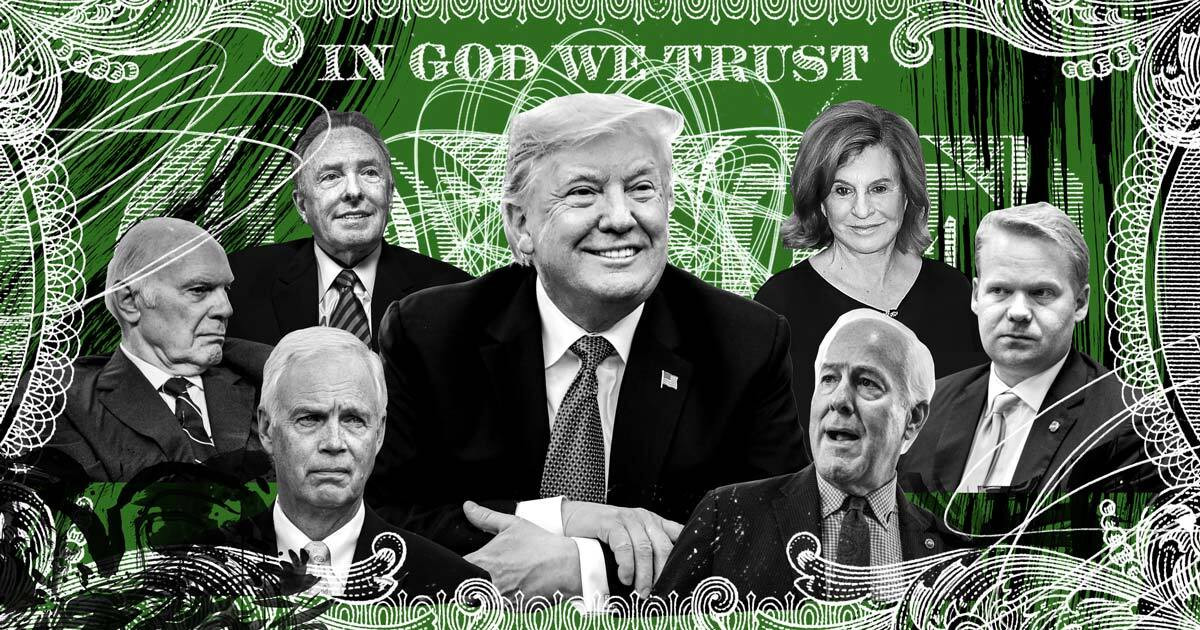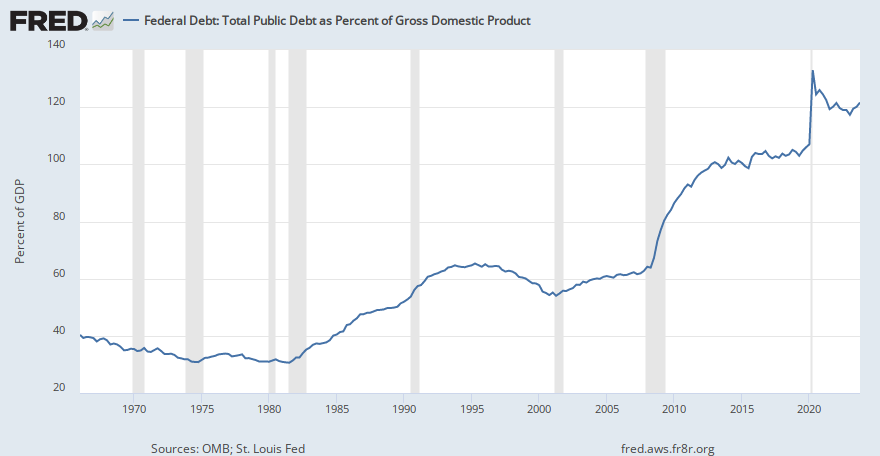Economists from Harvard, Princeton, the University of Chicago and the U.S. Treasury concluded in a recent report the Trump corporate tax reform worked as advertised.
The Wall Street Journal's James Freeman wrote in a summary of the 51-page National Bureau of Economic Research report that the 2017 Tax Cuts and Jobs Act created a surge in business investment, which greatly benefited the economy.
"The results of the Trump corporate tax reform were more business investment, more growth, more wages for workers—and little impact on government revenue as lower corporate tax rates were offset by an expanding economy. Game, set, match," Freeman argued.
The Trump tax cuts permanently reduced the corporate tax rate from 35 percent (the highest in the industrialized world) to 21 percent, which is slightly below average, the Tax Foundation reported.
The law also allowed for immediate expensing for shorter-term capital investments rather than requiring them to be written off over a five-year period.
In other words, the investments that companies made in equipment to grow their businesses could be written off against their income for that tax year.
The economists in the NBER report noted, "in our model, the dynamic labor and corporate tax revenue feedback in the first 10 years is less than 2% of baseline corporate revenue, as investment growth causes both higher labor tax revenues from wage growth and offsetting corporate revenue declines from more depreciation deductions."
Put in simpler terms, when companies reinvest and grow and become more efficient, salaries go up for their employees, who then pay more in taxes. The result: No loss in overall revenue to the Treasury when considered over a 10-year period.
William McBride and Alex Durante with the Tax Foundation wrote that the NBER study was "based on a large sample of 12,000 corporate tax returns covering several years prior to the enactment of the TCJA and two years after."
"The authors find that, on average, firms impacted by the policy changes increased domestic investment by about 20 percent in the subsequent two years relative to firms with no tax change," McBride and Durante explained.
Jason Furman -- former chairman of the Council of Economic Advisers during the Obama administration and current economics professor at Harvard \-- conceded that the TCJA worked as advertised. He did not co-write the NBER report, but was commenting about it.
"Taxes actually do matter ... Companies that saw larger reductions in tax rates from the TCJA also experienced larger increases in investment in the years that followed." Furman posted on social media.
Taxes actually do matter (Part I). Companies that saw larger reductions in tax rates from the TCJA also experienced larger increases in investment in the years that followed.
President Joe Biden unintentionally conceded last year that the Trump tax cuts were working when making the pitch for his fiscal year 2023 budget.
Keep in mind the Trump tax cuts are still largely in place, despite Biden's efforts to repeal them.
“[W]e have generated a GDP growth of 5.7 percent, the best economic growth we’ve seen in this country in over 40 years. This has led to a substantial increase in government revenues and dramatically improved our fiscal situation,” Biden said in March 2022.
The numbers speak for themselves: The federal treasury took in $4 trillion in fiscal year 2021 and $4.9 trillion in FY 2022.
Revenue dipped back down in FY 2023 to $4.44 trillion as the economy slowed under the weight of Biden's and the Democrats' inflationary spending policies, which have been dialed back again since Republicans took back control of the House.
By way of comparison, the federal government took in $3.3 trillion in revenues in 2017, prior to the Tax Cuts and Jobs Act being implemented.
So federal revenue overall is up over $1 trillion per year.
The concept is simple, though most Democrats don't seem to get it: A growing economy generates more revenue for the Treasury.
The economy grew at a healthy 4.9 percent during the third quarter of this year.
Biden mentioned last year the economy experienced the best growth rate in four decades.
Forty years takes us back to Ronald Reagan’s first term, when, following across-the-board tax cuts like those passed under Trump, the economy took off, experiencing 4.58 percent growth in 1983 and 7.2 percent in 1984.
It should also be noted that federal tax revenues doubled during the 1980s, from approximately $500 billion to almost $1 trillion, as the economy grew by over $2.5 trillion, from $7.32 trillion to $9.94 trillion GDP.
It's nice to see that economists at Ivy League schools and the Treasury are honest enough to admit the Trump tax cuts worked.
The Wall Street Journal's James Freeman wrote in a summary of the 51-page National Bureau of Economic Research report that the 2017 Tax Cuts and Jobs Act created a surge in business investment, which greatly benefited the economy.
"The results of the Trump corporate tax reform were more business investment, more growth, more wages for workers—and little impact on government revenue as lower corporate tax rates were offset by an expanding economy. Game, set, match," Freeman argued.
The Trump tax cuts permanently reduced the corporate tax rate from 35 percent (the highest in the industrialized world) to 21 percent, which is slightly below average, the Tax Foundation reported.
The law also allowed for immediate expensing for shorter-term capital investments rather than requiring them to be written off over a five-year period.
In other words, the investments that companies made in equipment to grow their businesses could be written off against their income for that tax year.
The economists in the NBER report noted, "in our model, the dynamic labor and corporate tax revenue feedback in the first 10 years is less than 2% of baseline corporate revenue, as investment growth causes both higher labor tax revenues from wage growth and offsetting corporate revenue declines from more depreciation deductions."
Put in simpler terms, when companies reinvest and grow and become more efficient, salaries go up for their employees, who then pay more in taxes. The result: No loss in overall revenue to the Treasury when considered over a 10-year period.
William McBride and Alex Durante with the Tax Foundation wrote that the NBER study was "based on a large sample of 12,000 corporate tax returns covering several years prior to the enactment of the TCJA and two years after."
"The authors find that, on average, firms impacted by the policy changes increased domestic investment by about 20 percent in the subsequent two years relative to firms with no tax change," McBride and Durante explained.
Jason Furman -- former chairman of the Council of Economic Advisers during the Obama administration and current economics professor at Harvard \-- conceded that the TCJA worked as advertised. He did not co-write the NBER report, but was commenting about it.
"Taxes actually do matter ... Companies that saw larger reductions in tax rates from the TCJA also experienced larger increases in investment in the years that followed." Furman posted on social media.
Taxes actually do matter (Part I). Companies that saw larger reductions in tax rates from the TCJA also experienced larger increases in investment in the years that followed.
President Joe Biden unintentionally conceded last year that the Trump tax cuts were working when making the pitch for his fiscal year 2023 budget.
Keep in mind the Trump tax cuts are still largely in place, despite Biden's efforts to repeal them.
“[W]e have generated a GDP growth of 5.7 percent, the best economic growth we’ve seen in this country in over 40 years. This has led to a substantial increase in government revenues and dramatically improved our fiscal situation,” Biden said in March 2022.
The numbers speak for themselves: The federal treasury took in $4 trillion in fiscal year 2021 and $4.9 trillion in FY 2022.
Revenue dipped back down in FY 2023 to $4.44 trillion as the economy slowed under the weight of Biden's and the Democrats' inflationary spending policies, which have been dialed back again since Republicans took back control of the House.
By way of comparison, the federal government took in $3.3 trillion in revenues in 2017, prior to the Tax Cuts and Jobs Act being implemented.
So federal revenue overall is up over $1 trillion per year.
The concept is simple, though most Democrats don't seem to get it: A growing economy generates more revenue for the Treasury.
The economy grew at a healthy 4.9 percent during the third quarter of this year.
Biden mentioned last year the economy experienced the best growth rate in four decades.
Forty years takes us back to Ronald Reagan’s first term, when, following across-the-board tax cuts like those passed under Trump, the economy took off, experiencing 4.58 percent growth in 1983 and 7.2 percent in 1984.
It should also be noted that federal tax revenues doubled during the 1980s, from approximately $500 billion to almost $1 trillion, as the economy grew by over $2.5 trillion, from $7.32 trillion to $9.94 trillion GDP.
It's nice to see that economists at Ivy League schools and the Treasury are honest enough to admit the Trump tax cuts worked.
MSN
www.msn.com



